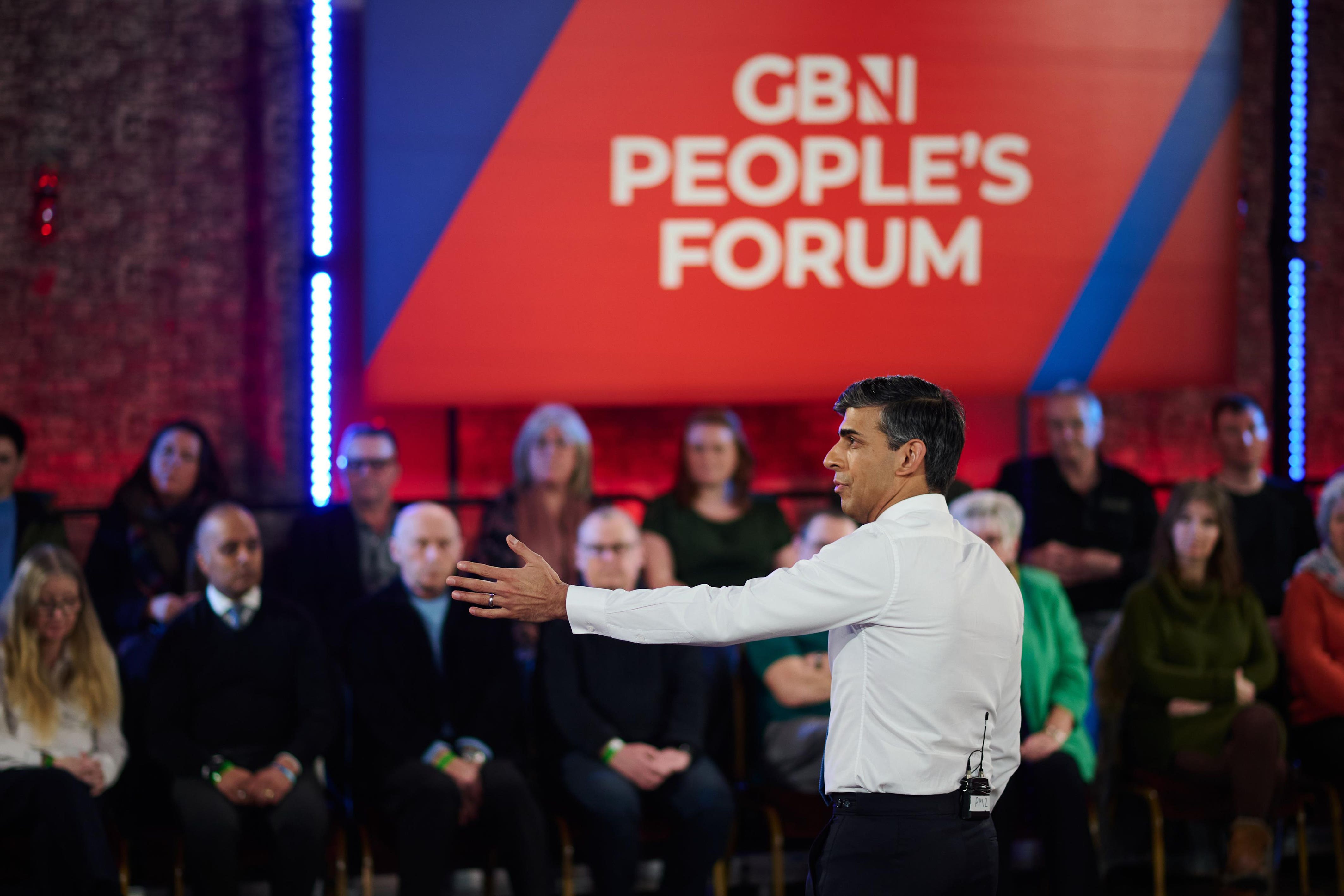Ofcom investigations into GB News in danger of looking biased, says Tory
Sir Michael Ellis said the news channel conducts itself in the same way as other broadcasters.

Your support helps us to tell the story
From reproductive rights to climate change to Big Tech, The Independent is on the ground when the story is developing. Whether it's investigating the financials of Elon Musk's pro-Trump PAC or producing our latest documentary, 'The A Word', which shines a light on the American women fighting for reproductive rights, we know how important it is to parse out the facts from the messaging.
At such a critical moment in US history, we need reporters on the ground. Your donation allows us to keep sending journalists to speak to both sides of the story.
The Independent is trusted by Americans across the entire political spectrum. And unlike many other quality news outlets, we choose not to lock Americans out of our reporting and analysis with paywalls. We believe quality journalism should be available to everyone, paid for by those who can afford it.
Your support makes all the difference.Ofcom’s multiple investigations into GB News risk “looking biased and political”, a Conservative former minister told the Commons.
Sir Michael Ellis said the news channel conducts itself in “exactly the same fashion” as others, and that the broadcast regulator is “in danger of putting themselves in judicial review territory” because of the “large number” of inquiries.
Culture Secretary Lucy Frazer said she was in favour of media plurality, but defended Ofcom, saying it “carries out its job appropriately”.
The exchange took place in the House of Commons as MPs put questions to culture ministers.
Does the Secretary of State share my concern that the large number of inquiries Ofcom have launched against GB News for conducting itself in exactly the same fashion as other channels routinely do, is in danger of looking biased and political
Elsewhere in the session, the Commons heard a suggestion that complaints about BBC impartiality should be investigated independently of the public service broadcaster.
Sir Michael said: “Does (the Secretary of State) share my concern that the large number of inquiries Ofcom have launched against GB News for conducting itself in exactly the same fashion as other channels routinely do, is in danger of looking biased and political, and Ofcom are in danger of putting themselves in judicial review territory.”
Ms Frazer said: “I am, and the Government is in favour of, media plurality. And it’s really important that we have different channels that express different views across our vast political landscape.
“I’m very pleased that GB News has chosen to be regulated by Ofcom and I know that Ofcom carries out its job appropriately.”
Ofcom says it currently has 13 open investigations into GB News. The majority relate to rules around impartiality, with one related to rules on offence and another on fairness and privacy.
The regulator says GB News has been found to have breached its rules on five previous occasions.
Earlier this week, the watchdog announced it had launched an investigation into a programme which saw Prime Minister Rishi Sunak take questions in a live Q&A format on GB News.
Concerns were raised over whether it breached rules requiring an “appropriately wide range of significant views”.
During the broadcast, presenter Stephen Dixon said the questions to be asked by undecided voters had not been seen in advance by the Prime Minister or by GB News.
Other complaints include concerns raised over political figures such as prominent Conservative MPs Sir Jacob Rees-Mogg and Lee Anderson presenting topical programmes.
On BBC impartiality, Conservative former minister and ex-BBC journalist, Rob Butler, said in the Commons: “Every year, many people complain that the BBC is not as impartial as it should be, even that it is biased, and the BBC then dismisses the vast majority of those complaints itself.
“I wonder, then, if my right honourable friend thinks that perhaps the public would have more confidence in the way those complaints are investigated if they were carried out independently from the outset?”
Ms Frazer replied: “The public expects the BBC to be an exemplar in relation to impartiality and in our review we highlight issues, both in relation to impartiality and in relation to complaints, and as a result of that review, the BBC will undertake significant reforms in relation to both impartiality and complaints.
“And a charter review, I have already said, will examine whether BBC first remains the right complaints model.”
Conservative MP Andy Carter (Warrington South) raised concerns over what he described as BBC plans to “launch four new national music radio stations and to relaunch an existing station, 5 Live Sports Extra”.
He said: “To my mind, they are a direct imitation of commercial broadcasters’ innovation. And the time and resource the BBC are investing could be better spent in reversing the cuts to BBC local radio, a source of distinctive public service content.”
Culture minister Julia Lopez said: “In relation to the issue that he speaks of on the launch of new radio services, I have spoken to the director general about this, and he is also very very aware of the strength of feeling in this House about the local radio proposals.
“The midterm review does say that the BBC should engage much more closely with the market ahead of the launch of any new stations, but there is also powers Ofcom has to make a judgement on this before a new station is launched.”
The BBC has said the new “distinctive” digital music stations will delve deeper into specific genres and periods of music in a way “only the BBC can do”.